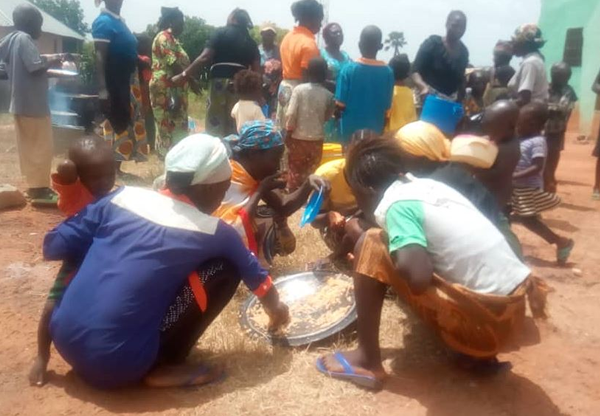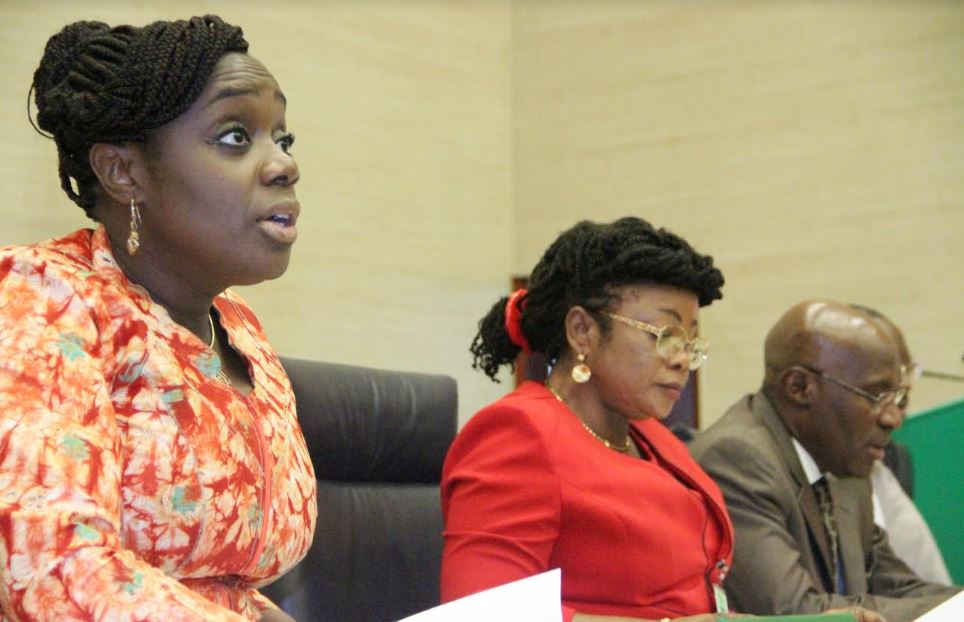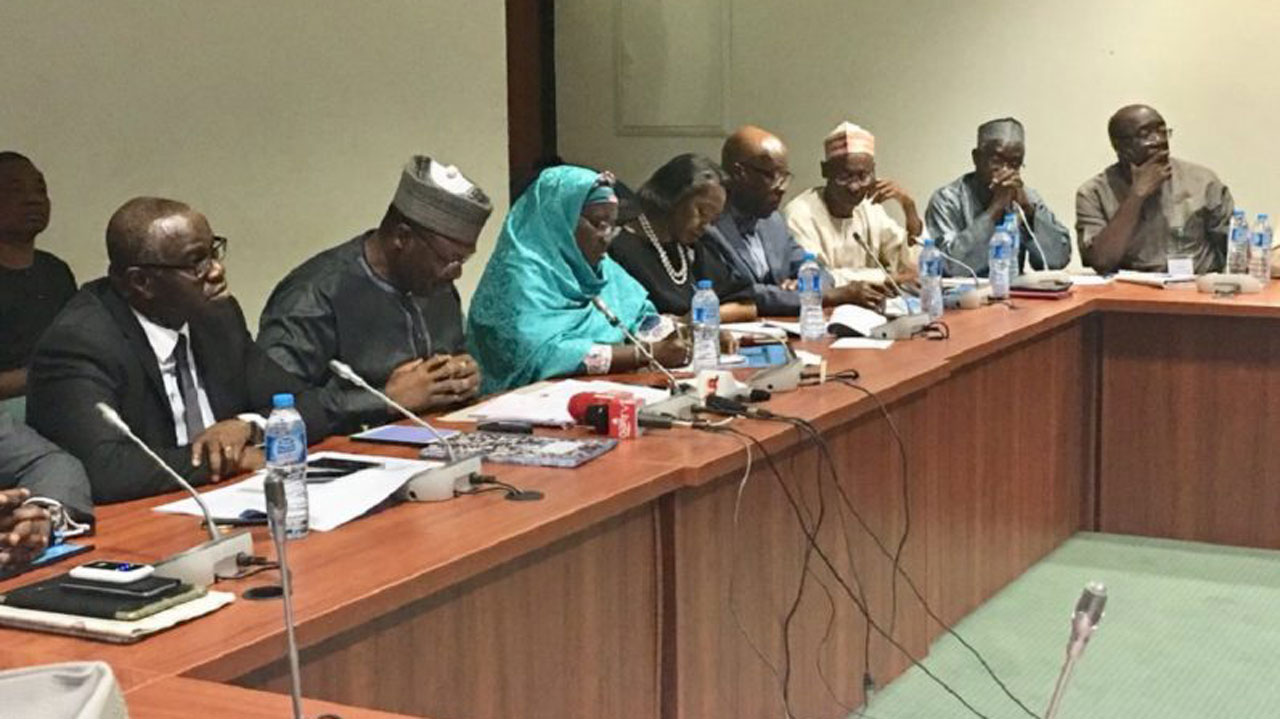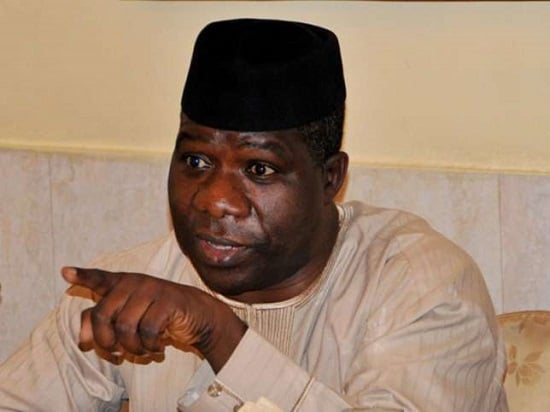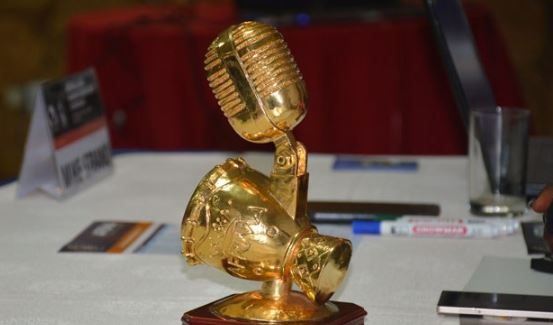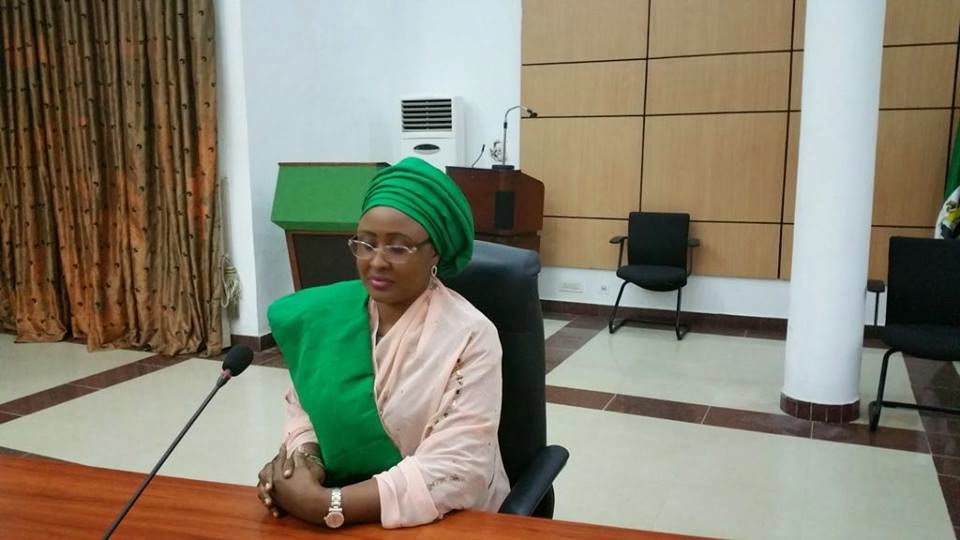IDPs share breakfast together in one of the camps. Time was around 1pm
BY EKENE ODIGWE
The British Prime Minister Theresa May’s poverty remark about Nigeria sparked a conversation of conflicting views across the country, but the fact remains that this is not the first time this has happened. Bill Gates in March this year, at the special and expanded National Economic Council held in Abuja, stated that the execution priorities of the presidency’s economic plan do not fully reflect people’s needs as it prioritised physical capital over human capital.
Although, a few days later, the minister of budget and national planning, Udoma Udoma, in a statement said the media misunderstood the context of Gates’ stance on Buhari’s economic blueprint but here we are leading the world on poverty rate. Poverty according to United Nations Development Programme (UNDP) is multidimensional therefore it is not simply a lack of adequate income. Earning US$1.90 PPP (purchasing power parity) per day is unlikely to mean the end of the many overlapping deprivations faced by poor people which includes malnutrition, poor sanitation and a lack of electricity or inadequate education. According to the Global Multidimensional Poverty Index (MPI) 1.6 billion people in 108 countries, that is homes to 78 percent of the world’s population are identified as multidimensionally poor. UNDP argues that using MPI, the data reflects the combined simultaneous disadvantages poor people experience in different areas of their lives.
Over 700 million people worldwide still live below the US$ 1.90 per day, and over half the global population live at the bottom of the economic pyramid on less than US$8 per day.
The Nigerian scene is not so far apart as the National Bureau of Statistics had even painted a worse picture in 2016 when it reported that no fewer than 112 million Nigerians live below the poverty line, preceding year the World Poverty Clock (WPC) suggested that Nigeria’s struggle with overpopulation will be a problem in 2017 rather than in 2050 as many people had thought and that by February 2018 Nigeria will overtake India as the country with the most people in extreme poverty but corporations, legislators and the electorates never believed nor took it seriously.
Advertisement
Well, not entirely, because the government at about same time intensified efforts on agricultural diversification programmes and interventions, some state governments even started their own agricultural programmes, as research shows that the National assembly passed the 2017 Appropriation Bill of N7.441 trillion, with the agriculture sector receiving an allocation of N103.7 billion, an increment of N12 billion compared to the N92 billion naira earlier proposed for the sector in 2016. The increase they argued is in response to the continuing clamour for more funding to support food security and economic diversification. It is also in realisation of the cardinal position Agriculture and agribusiness occupies in the quest to defeat unemployment and its related vices.
However, with lots of intervention programmes and diversification strategies of the government Nigeria still overtook India to emerge as a country with the highest number of poor people in 2018. Prior to this, the 2015 United Nations Sustainable Development Goal has end poverty in all its forms everywhere as goal 1. This goal explicitly recognizes that poverty results not from the lack of just one thing but from many different interrelated factors that affect the lives of people. It is proven that living in poverty carefully sets motion for humiliation, exclusion and low participation in most social and civic duties from education to health and living standards.
This representation also confirms the UNDP ideology that poverty is multidimensional, now it even gets scarier because in order to eradicate extreme poverty for all people everywhere by 2030 there is need to achieve global peace, holistic collaboration and intervention. Putting into practice the system that 90 people has to leave poverty line every minute in other to eradicate poverty totally by 2030. As promising as this sound, there is nevertheless a shortage of about 9.5 million people globally per year. Presently, The World Poverty Clock predicts that for the 2030 SDG target to be met in Africa, 57 people have to leave extreme poverty line every minute but that is not the case rather than leaving, people enter extreme poverty every minute. Nigeria needs 11.9 people per minute to escape extreme poverty, but at the moment has a deficit of 6.8 people every minute, i.e. 6.8 people enter into poverty line every minute instead of leaving.
Advertisement
Question is why anyone would believe what the World Poverty Clock says. The reality remains that WPC is a tool that monitors progress against poverty globally and regionally, it provides real-time poverty data across countries. So if it was that reliable why didn’t the government and the people of Nigeria utilize the knowledge as the report shows how close they were to doomsday? Some SDGs implementers believe that accumulated debts over the years, gross embezzlement of public funds, neglect of duties, inadequate implementation of set objectives and personal interest over that of the state is responsible for landing Nigeria as the leading nation of poor people.
Somto Ugwu, the gender and partnership officer at The Society For Improvement Of Rural (SIRP), argues that Nigeria became like this through a repeated cycle of corrupt leaders who do not care about the welfare of Nigerians so instead of providing various employment opportunities for the teeming unemployed population in this country they prefer to siphon money and invest it in foreign countries thereby helping to develop those countries.
For Ntienyong Udoh a broadcast journalist, when a country’s economic blueprint does not address the basic needs of her citizenry what you get is white elephant projects rather than Human resource investment. Developed and developing countries understand the model of human capital but not Nigeria, as published documents by BudgIT show that a Nigerian senator earns 19,982,600.00 a year in salary, while House of Representatives members earn 15,259,440.00 but that’s not all because for lawmakers. The big pays come in form of generous allowances which when put together displays that each lawmaker cost taxpayers 196,192,800.00 to maintain as of 2017, so how does a public office holder in the same Nigeria that has the highest number of poor people take home that much? It is because the concern of Nigerians does not mean anything to the public office holders and that is why the poor can afford to sell their votes just to eat today.
We can overcome this by beginning to demand for accountability, reports of projects and follow the trail of earmarked funds, some Civil Society Organizations and Concerned Nigerian Citizens are already doing this but more citizens need to be enlightened. Both the electorates and the elected should lay more emphasis on entrepreneurship and skills development. The more people network and patronize each other’s goods and services the easier it becomes to keep one another smiling to the bank. The media has to do more and Civil Society organizations need to restrategize their approach, SDGs Implementers must adopt the human angle model if at all we must meet Agenda 2030 of the United Nations and meet the aspirations of Agenda 2063 that envision the “Africa we want.
Advertisement
The present administration’s anchor of the economy over the longterm investments in infrastructure and competitiveness must go hand in hand with investment in people. People without roads ports and factories can’t flourish. And roads, ports and factories without skilled workers to build and manage them can’t sustain an economy. Finally, any government that invests in human capital is capable of transforming the financial, environmental, technical and social capital into a viable economy and it is a way to achieve sustainable development goal 1.
Ekene Odigwe is an OAP at coalcity929fm, fellow at YALINetwork, and an SDGs advocate.
Add a comment
